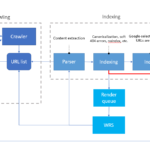Why You Shouldn’t Compare Your Fitness Progress with Others
By Sohamjita Roy ,
It’s easy to fall into the trap of comparing your fitness journey to someone else’s. Whether it’s their faster results, different workout routines, or seemingly effortless success, the temptation is always there. But comparing your progress to others is rarely beneficial, and here’s why:
1. Individual Differences
– Genetics: Everyone’s body responds differently to exercise and nutrition due to unique genetic factors. Elements like muscle composition, metabolism, and hormonal responses vary from person to person, which means that what works for one may not work for another.
– Body Composition: Even if two people have similar weight and body fat percentages, differences in muscle distribution and bone density can lead to different appearances and performance outcomes.
2. Different Starting Points
– Every fitness journey begins at a unique starting point. A person who has been training for years will naturally see faster or different results compared to someone who is just starting. Comparing yourself to them is not only unfair but can also distort your sense of progress.
3. Unique Goals
– Everyone has different fitness objectives. While some people may focus on building strength, others may aim for endurance, flexibility, or changing their body composition. Comparing your journey to someone whose goals differ from yours will only lead to frustration.
4. Personal Circumstances
– Lifestyle: Factors such as work schedules, family responsibilities, stress, and sleep quality all influence fitness progress. What works for someone with a more flexible lifestyle may not work for you if your circumstances are different.
– Time Commitment: The amount of time you can dedicate to training and meal prep can vary significantly. If someone else has more time to invest in their fitness, it’s unrealistic to expect the same progress on a tighter schedule.
5. Psychological Impact
– Demotivation: Constant comparisons can leave you feeling inadequate and demotivated, particularly when you feel you’re falling behind.
– Mental Health: This mindset can lead to anxiety and even depression, especially if you set unrealistic goals based on someone else’s achievements. It’s important to focus on what’s realistic for you.
6. Progress is Non-linear
– Fitness progress is rarely a smooth, linear path. There will be moments of rapid advancement and periods where it seems like nothing is happening. This is a normal part of the process, influenced by factors like training intensity, recovery, and nutrition. Comparing yourself to someone in a different phase of progress can be discouraging.
7. Focus on Self-Improvement
– The most valuable comparison you can make is with your past self. Tracking your own progress over time allows you to celebrate your improvements and identify areas for further development. This is where your true strength lies—growing into a better version of yourself every day.
उसे गुमाँ है कि मेरी उड़ान कुछ कम है,
मुझे यक़ीं है कि ये आसमान कुछ कम है..
By Sohamjita Roy
Fittr Coach
Follow her on Facebook for more health related information
#fittrcoach









